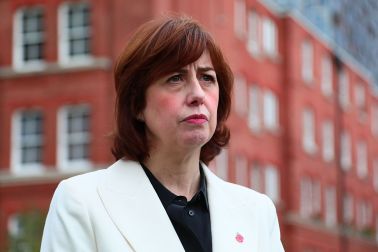On this week’s episode, we discuss the future of Christians as a minority group, consider whether Trump has found an ally in Britain, and dissect the 21st century phenomenon of the ‘flake’.
First, with Easter just around the corner, the fate of Christianity in an increasingly secular Britain came under scrutiny. In this week’s magazine cover story, Rod Dreher advocates for ‘the Benedict option’, where Christian communities develop stronger personal identities. But Matthew Parris argues against this proposal, and they go head-to-head on the podcast. As Rod writes:
“The collapse of religion in Britain has been perhaps the most striking feature of the last generation. The sheer pace of the decline has been recorded by Damian Thompson in this magazine: church pews are emptying at the rate of 10,000 people per week. In 1983, some 40 per cent of the population declared itself Anglican. Now, it’s 17 per cent. To be a practising Christian in the West now is to belong to a minority.”
But Matthew finds fault in Rod’s argument, saying:
“Often enough I rage against simpering Anglicanism. I beat my atheist’s fists against the church’s refusal to decide what it actually believes. I mock trendy vicars and hand-wringing bishops and their attempt to stay friends with a Britain increasingly uninterested in their friendship. But in this issue Dreher shows us the alternative, and in me is born a sneaking admiration for the Church of England’s often perplexed but ever hopeful struggle to carry on liking the century it’s in.”
Next, we return our attention to the situation in Syria – and in the White House. In his column this week, James Forsyth writes that the creeping influence of Trump’s new National Security Advisor, H.R. McMaster, is good news for stability in the Oval Office, and for Britain’s participation on the world stage. He joins the podcast along with one of Trump’s staunchest critics – and veteran of the George W. Bush administration – David Frum. As James notes:
“Debates about Britain’s role in the world too often pretend that our only choice is to be top dog or an irrelevance. It’s true that we will never be the global hegemon again. But we still have the capacity to shape the world, rather than be shaped by it. We still have money. We just need to spend it a little more wisely.”
On the podcast, David is pessimistic about Theresa May’s cosy relationship with Trump, observing:
“If Britain had a functioning opposition party – which it doesn’t, but if it did – a leader of the opposition would be slamming the Prime Minister every day in the House of Commons. How are you providing a state visit to a man who has said such vile, libellous and false things about the men and women of our intelligence services and accusing us of breaking treaties? And that would be a very powerful question politically, because I think there are a lot of people in Britain who would like to see their government stand up for their country. Now, luckily for Theresa May she doesn’t face such an opposition, but she may in the future, and there may be a price for humouring the madman in the corner because he has the strength of a gorilla.”
Finally, in this era of incessant digital communication, it’s small wonder that our young people are turning into ‘flakes’. But that’s no excuse, says Cosmo Landesman, for behaviour that would otherwise be seen as rude, unreliable and selfish. He joins the podcast to lament being flaked on, along with the artist and writer Freya Wood. This discussion was precipitated by a troubling occurrence in Cosmo’s dating life, which he describes:
“It was the third time in a row that she had cancelled our date for drinks. The first time she’d forgotten. The second time she remembered a previous engagement and the third time she claimed she’d got the dates mixed up. The next day I got the text she always sends: ‘Sorry darling, I’m such a flake!’”

This podcast is sponsored by Berry Bros. & Rudd, who have long supplied wine for The Spectator. If you’ve always wanted to start a wine cellar, 2017 could be the perfect time. Whether you are looking to buy for future drinking, for investment or a little of both, Berry Bros. & Rudd’s Cellar Plan is designed to suit all tastes and budgets. A personal Account Manager will be on hand to offer advice and assistance, and enable you to benefit from three centuries’ worth of relationships with the leading wine growers. To find out more about starting a wine cellar with Berry Bros. & Rudd, visit bbr.com/cellarplan









Comments